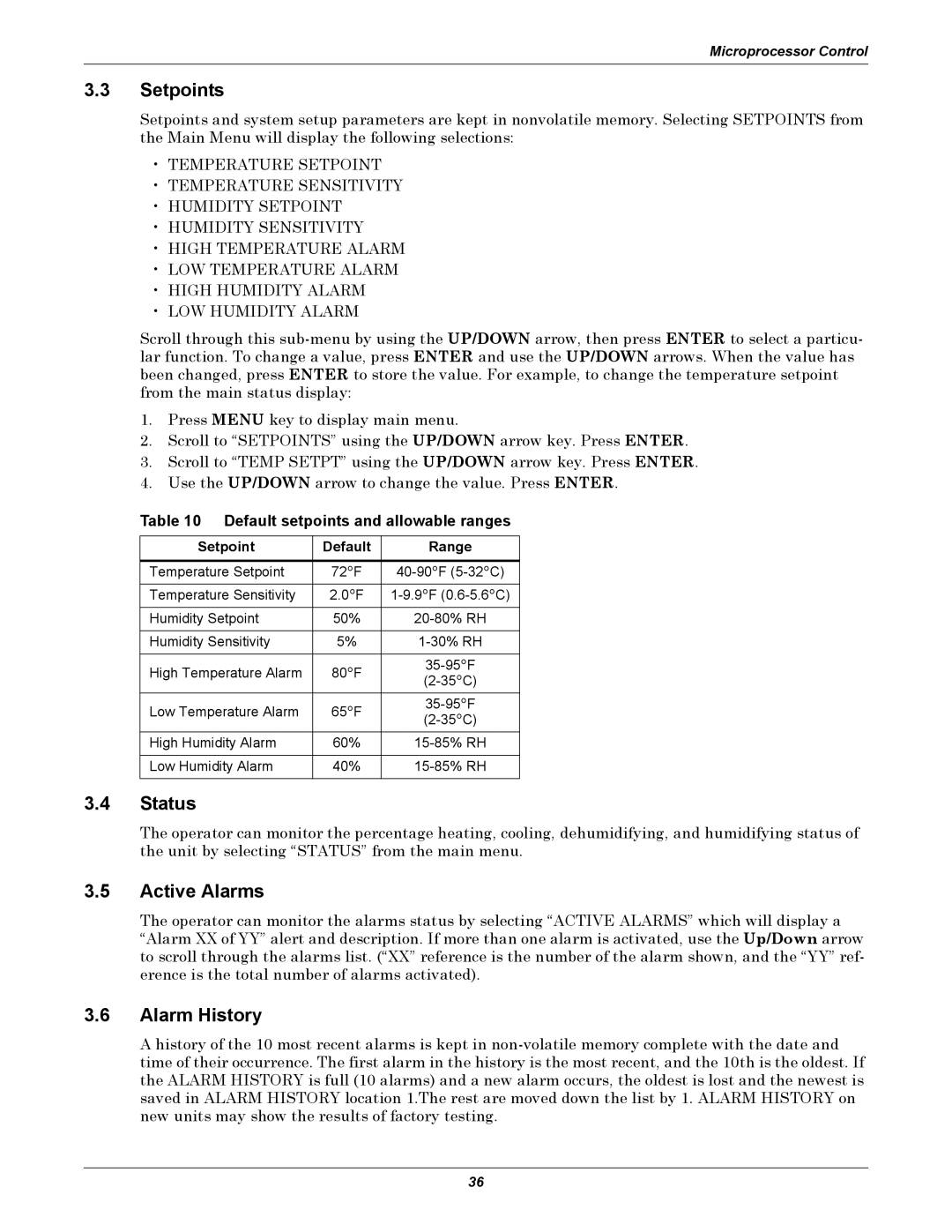
Microprocessor Control
3.3Setpoints
Setpoints and system setup parameters are kept in nonvolatile memory. Selecting SETPOINTS from the Main Menu will display the following selections:
•TEMPERATURE SETPOINT
•TEMPERATURE SENSITIVITY
•HUMIDITY SETPOINT
•HUMIDITY SENSITIVITY
•HIGH TEMPERATURE ALARM
•LOW TEMPERATURE ALARM
•HIGH HUMIDITY ALARM
•LOW HUMIDITY ALARM
Scroll through this
1.Press MENU key to display main menu.
2.Scroll to “SETPOINTS” using the UP/DOWN arrow key. Press ENTER.
3.Scroll to “TEMP SETPT” using the UP/DOWN arrow key. Press ENTER.
4.Use the UP/DOWN arrow to change the value. Press ENTER.
Table 10 Default setpoints and allowable ranges
Setpoint | Default | Range | |
|
|
| |
Temperature Setpoint | 72°F | ||
|
|
| |
Temperature Sensitivity | 2.0°F | ||
|
|
| |
Humidity Setpoint | 50% | ||
|
|
| |
Humidity Sensitivity | 5% | ||
|
|
| |
High Temperature Alarm | 80°F | ||
|
| ||
|
|
| |
Low Temperature Alarm | 65°F | ||
|
| ||
|
|
| |
High Humidity Alarm | 60% | ||
|
|
| |
Low Humidity Alarm | 40% | ||
|
|
|
3.4Status
The operator can monitor the percentage heating, cooling, dehumidifying, and humidifying status of the unit by selecting “STATUS” from the main menu.
3.5Active Alarms
The operator can monitor the alarms status by selecting “ACTIVE ALARMS” which will display a “Alarm XX of YY” alert and description. If more than one alarm is activated, use the Up/Down arrow to scroll through the alarms list. (“XX” reference is the number of the alarm shown, and the “YY” ref- erence is the total number of alarms activated).
3.6Alarm History
A history of the 10 most recent alarms is kept in
36
